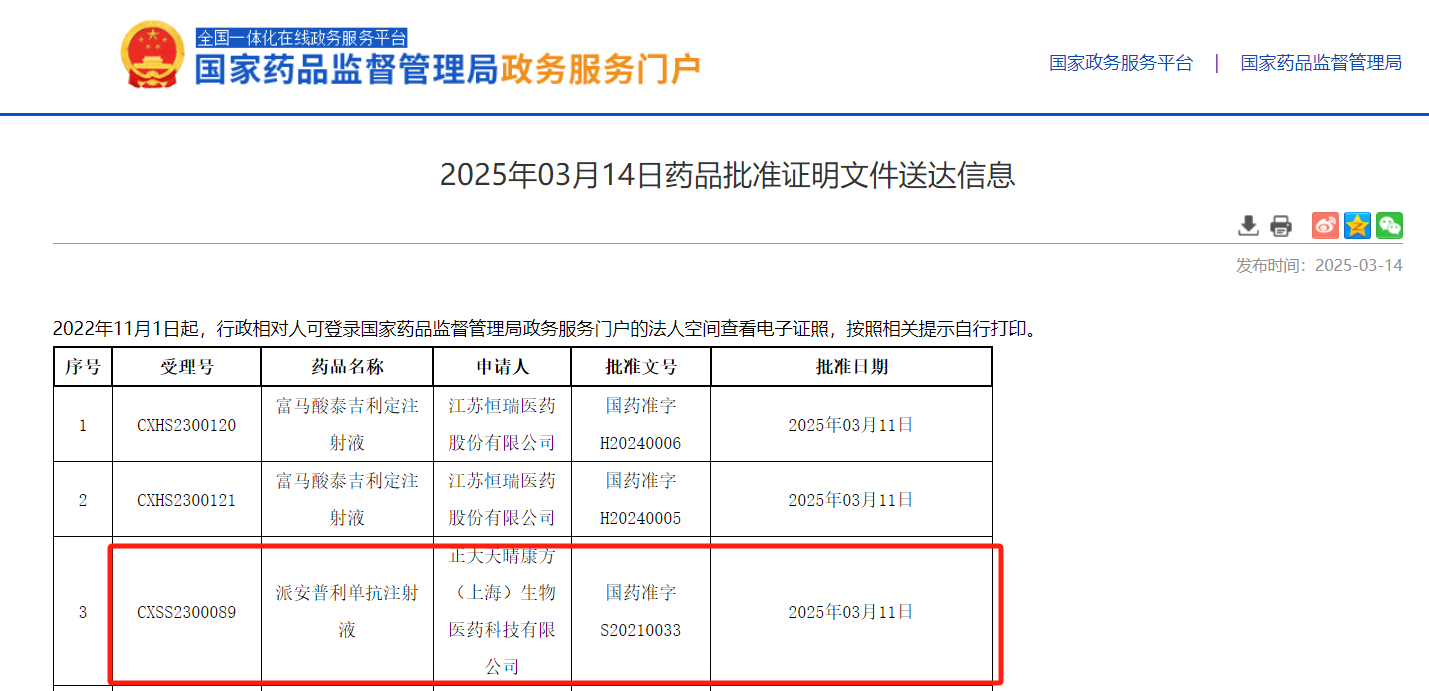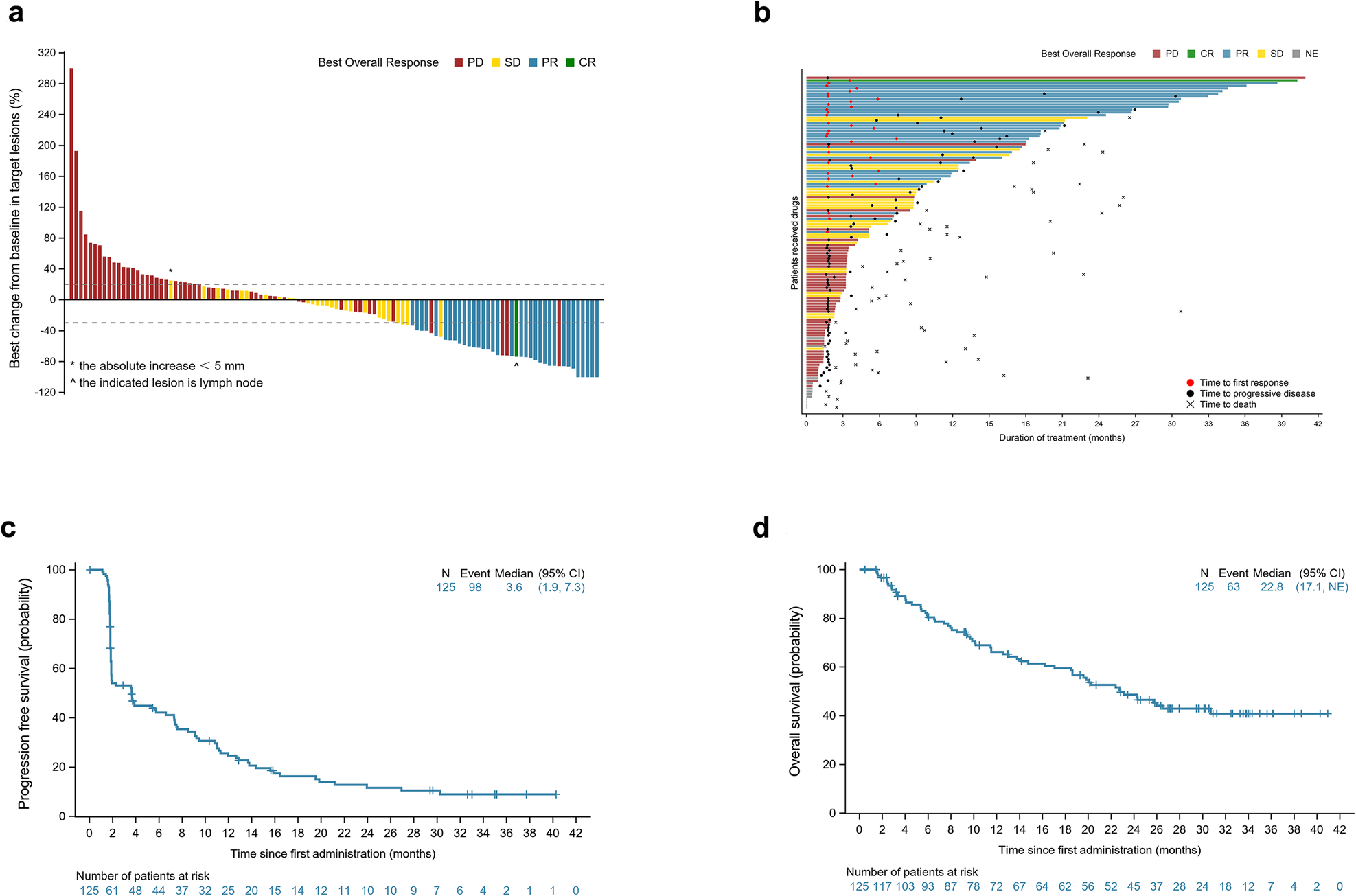On March 16, 2025,Akeso announced that its innovative, self-developed anti-PD-1 monoclonal antibody, penpulimab, has been officially approved by the National Medical Products Administration (NMPA) for the first-line treatment of recurrent or metastatic nasopharyngeal cancer (NPC) in combination with chemotherapy.

Penpulimab (PD-1 Monoclonal Antibody) is currently the only differentiated PD-1 monoclonal antibody that applies the IgG1 subtype with modified Fc-nulldomain, which can more effectively enhance immunotherapeutic efficacy and reduce immune-related adverse reactions. It is used in the treatment of major diseases such as lung cancer, lymphoma, nasopharyngeal cancer, liver cancer, and gastric cancer, with improved safety and efficacy as demonstrated in clinical studies.
This marks the fourth approved indication for penpulimab. In addition to the two NPC indications, penpulimab is also approved for first-line treatment of locally advanced or metastatic squamous non-small cell lung cancer (NSCLC) when combined with chemotherapy, as well as for monotherapy in patients with relapsed or refractory classical Hodgkin lymphoma (cHL) who have previously received at least two lines of systemic chemotherapy. Furthermore, a supplemental New Drug Application (sNDA) for penpulimab in combination with anlotinib for first-line treatment of advanced hepatocellular carcinoma (HCC) is currently under review.
Previously, penpulimab was approved for use as a third-line treatment for advanced NPC. With this new approval, penpulimab now provides comprehensive treatment coverage across all stages of NPC, offering patients a continuous immunotherapy option from first-line to third-line therapy.
On June 19, 2024, the “Signal Transduction and Targeted Therapy” published the results of a phase II study on the treatment of previously treated metastatic nasopharyngeal carcinoma with pembrolizumab.
This single-arm, phase II trial conducted across 20 tertiary care centers in China enrolled adult patients with metastatic nasopharyngeal carcinoma (NPC) who had failed two or more lines of previous systemic chemotherapy. Patients received 200-mg penpulimab intravenously every 2 weeks (4 weeks per cycle) until disease progression or intolerable toxicities. The primary endpoint was objective response rate (ORR) per RECIST (version 1.1), as assessed by an independent radiological review committee. The secondary endpoints included progression-free survival (PFS) and overall survival (OS). One hundred thirty patients were enrolled and 125 were efficacy evaluable. At the data cutoff date (September 28, 2022), 1 patient achieved complete response and 34 patients attained partial response. The ORR was 28.0% (95% CI 20.3–36.7%). The response was durable, with 66.8% still in response at 9 months. Thirty-three patients (26.4%) were still on treatment. The median PFS and OS were 3.6 months (95% CI = 1.9–7.3 months) and 22.8 months (95% CI = 17.1 months to not reached), respectively. Ten (7.6%) patients experienced grade 3 or higher irAEs. Penpulimab has promising anti-tumor activities and acceptable toxicities in heavily pretreated metastatic NPC patients, supporting further clinical development as third-line treatment of metastatic NPC.

At present, there are still many clinical trials of new anti-cancer technologies in China seeking patients. Consultation on new drugs and technologies, you can contact Beijing South Region Oncology Hospital International Department.
Phone Number:4008803716
Email:myimmnet@163.com
Post time: Apr-25-2025

